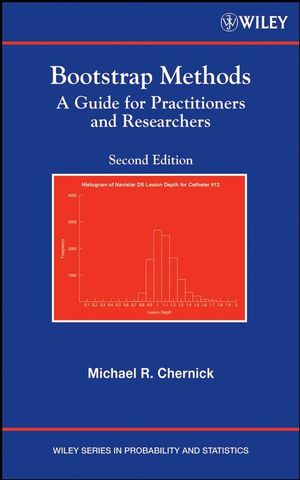Bootstrap Methods: A Guide for Practitioners and Researchers, 2nd EditionISBN: 978-0-471-75621-7
Hardcover
400 pages
November 2007
 This is a Print-on-Demand title. It will be printed specifically to fill your order. Please allow an additional 10-15 days delivery time. The book is not returnable.
|
||||||
Over the past decade, the application of bootstrap methods to new areas of study has expanded, resulting in theoretical and applied advances across various fields. Bootstrap Methods, Second Edition is a highly approachable guide to the multidisciplinary, real-world uses of bootstrapping and is ideal for readers who have a professional interest in its methods, but are without an advanced background in mathematics.
Updated to reflect current techniques and the most up-to-date work on the topic, the Second Edition features:
-
The addition of a second, extended bibliography devoted solely to publications from 1999–2007, which is a valuable collection of references on the latest research in the field
-
A discussion of the new areas of applicability for bootstrap methods, including use in the pharmaceutical industry for estimating individual and population bioequivalence in clinical trials
-
A revised chapter on when and why bootstrap fails and remedies for overcoming these drawbacks
-
Added coverage on regression, censored data applications, P-value adjustment, ratio estimators, and missing data
-
New examples and illustrations as well as extensive historical notes at the end of each chapter
With a strong focus on application, detailed explanations of methodology, and complete coverage of modern developments in the field, Bootstrap Methods, Second Edition is an indispensable reference for applied statisticians, engineers, scientists, clinicians, and other practitioners who regularly use statistical methods in research. It is also suitable as a supplementary text for courses in statistics and resampling methods at the upper-undergraduate and graduate levels.



